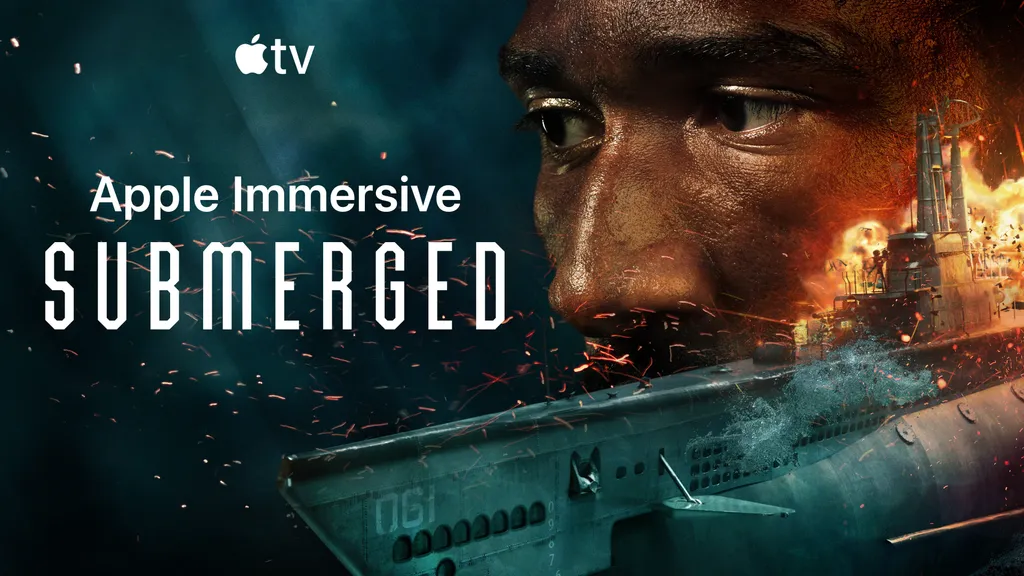Cinephiles scratching their heads at Megalopolis and the limits of the Hollywood machine for making movies in the 21st century should find an Apple Vision Pro and sit for a showing of Submerged.
Apple invited me to what amounts to a premiere red carpet event in New York to view Submerged before its release on Apple’s headsets. They told me to bring my Zeiss prescription lenses if I had them, so I pulled those off my headset at home and brought them along in my UploadVR Bag.
When I arrived, I mentioned I brought my lenses and was told I needed to have also brought along an Apple Clip Code identifying my prescription to the headset. I didn’t realize I had it on hand, with Apple representatives pointing me to the Health app on my iPhone which already had the prescription there from when I bought the lenses.
So I snapped my lenses into the headset, put it on, and pointed its cameras at my iPhone screen to adjust for my prescription.
Before the main event, Apple showed some forthcoming video from the NBA All-Star game. This was a fascinating point of comparison, because in 2018 I attended a Lakers game at the peak of NextVR’s push for VR streaming and noted the careful placement of their cameras to provide intimate angles, like directly through the backboard.
In the new NBA video from Apple showing the All-Star game in 2024, though, you can see how the backboard is occupied by a different camera system moving to follow the action for TV viewers. Because the Apple camera was placed on the hoop’s stand, then, my view violently shook with each dunk. I didn’t enjoy that. Another shot from court side, meanwhile, had a ball come directly at the camera, which was a standout moment when a viewer is likely to try and dodge the ball.

I didn’t bring my lenses through the NYC rail system to go courtside at an NBA game, though. I came to watch Apple’s first immersive scripted short film, and now it’s time for my mostly spoiler-free review.
Submerged In The Future Of Movies
Submerged is a breakthrough short film for immersive media.
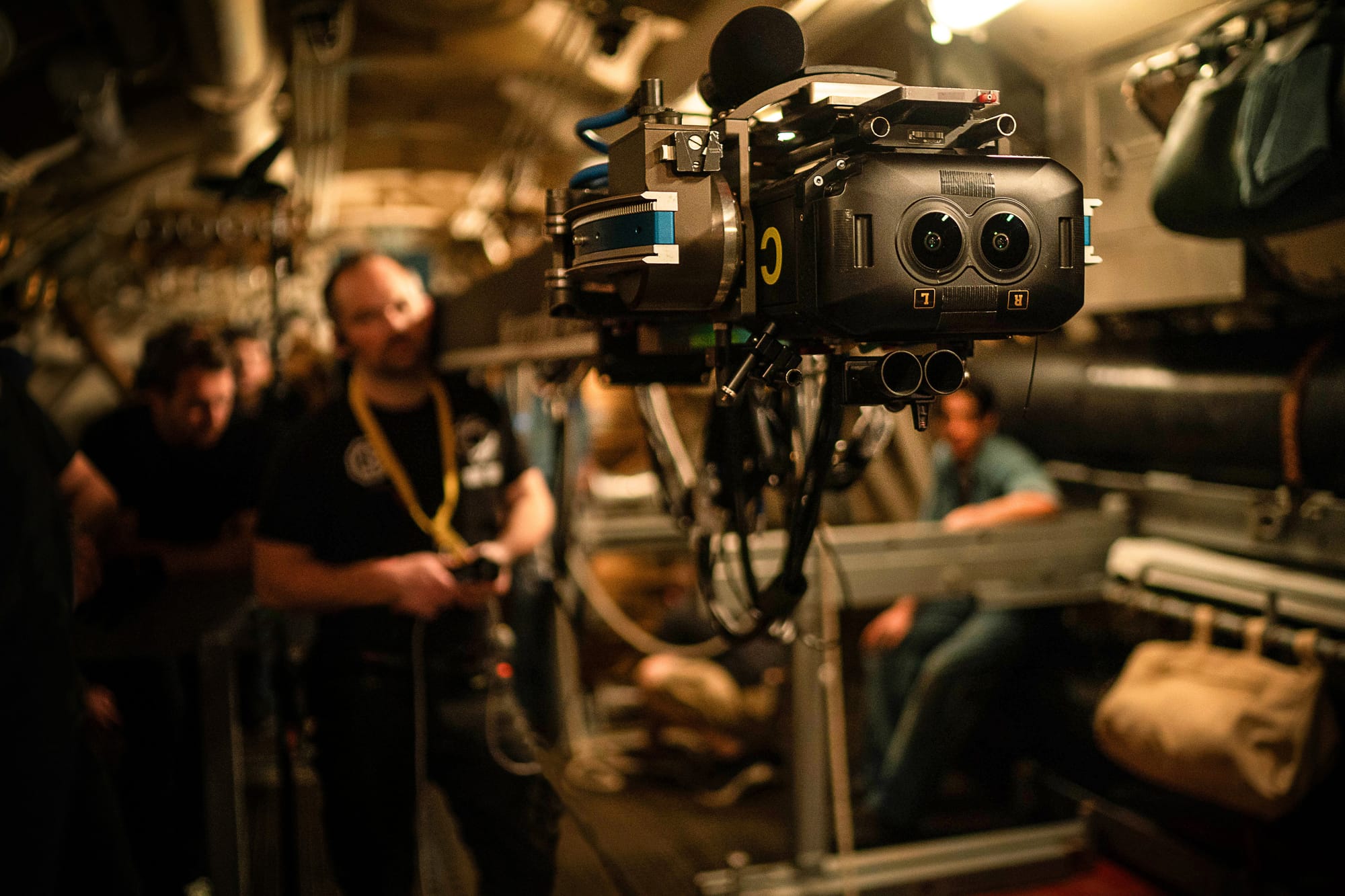
Finding a friend with a Vision Pro to see it should be a priority for any professional, or would-be professional, hoping to work in movies. While the vast majority of people won't be able to try this yet, and that's a shame, eventually there will be a Vision headset at a price point where they can.
Immersive movie-making is not a new idea, of course. From smell-o-vision to stereoscopic 3D, haptic chairs, IMAX and, yes, even Adam Driver addressing questions from the audience in Megalopolis, there’s more than a century of exploration you can follow in how exactly to keep movie-going butts in seats for longer, more thrilling escapes.
Despite all these efforts, the theatrical experience seems to be on life-support at most venues. There’s the drive to stream from home and, when you can actually afford to go out to a movie, run-down concession counters are worked by unmotivated staff as the venue beams movies through dim projectors onto a screen specked with distracting debris competing with the near-constant temptation to check your phone. This death-by-a-thousand cuts, it seems, largely destroys the escapism and suspension of disbelief these theaters provided for generations.
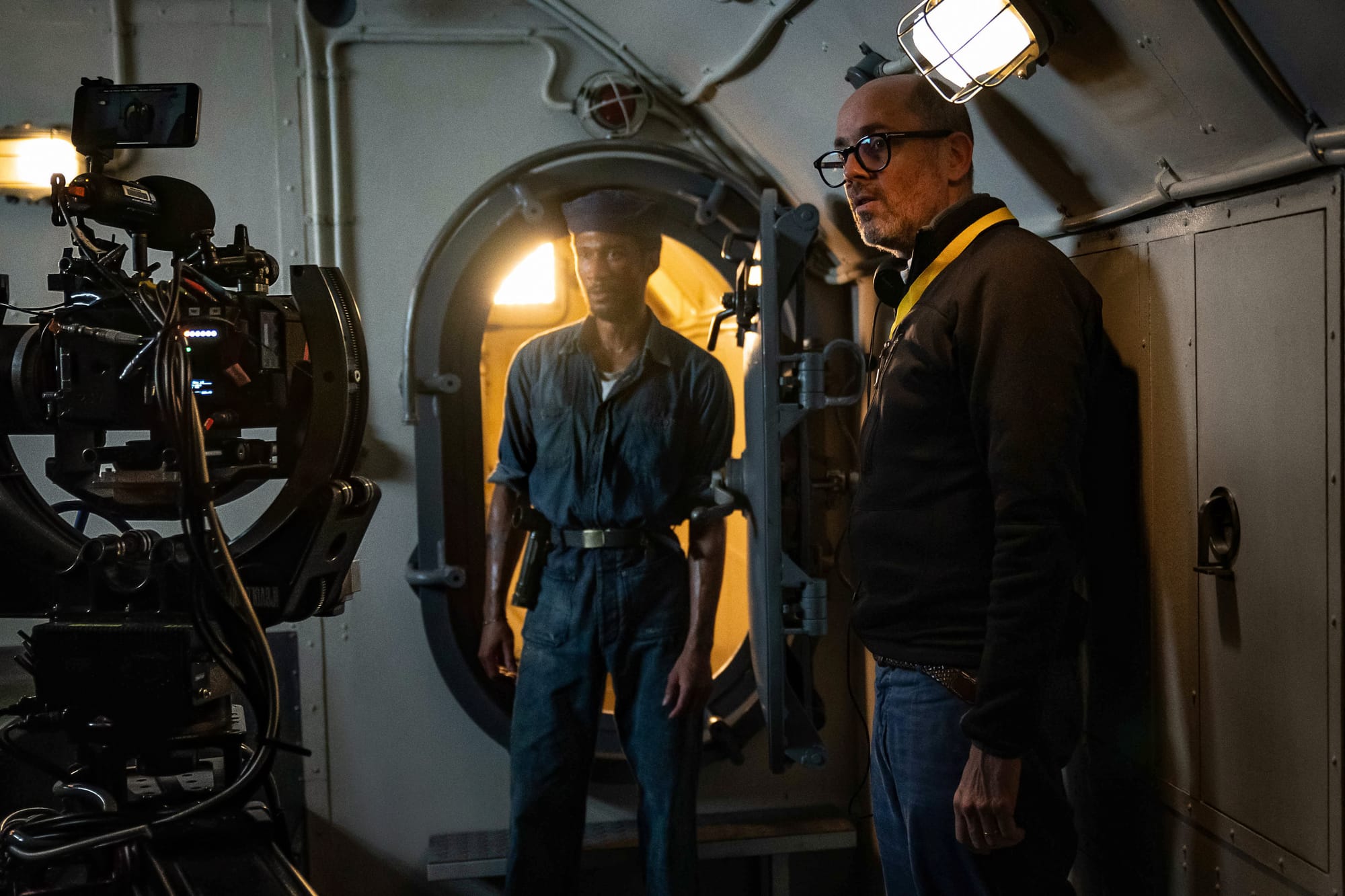
Even in my viewing in VR, I forgot to put my iPhone in Do Not Disturb before “entering the theater” and so, unable to see my phone and unwilling to pause the movie and take the headset off – it was just a 17 minute production after all – the device vibrated and dinged at me through the entire showing. My iPhone essentially transformed into the chattering couple in the third row detracting from this engrossing experience, even while inside Apple’s theater-for-one. It was revealing, then, to see iPhone itself as a core problem here which Apple is attempting to solve with Vision Pro.
Submerged features a number of shots set underwater. Based on those scenes, I told Apple public relations they should release this short film for Quest headsets too so consumers could compare the presentation on an LCD display to the OLED of Apple Vision Pro. I theorize these shots would be utterly unwatchable on a Meta Quest 2, 3, or 3S display. In Disney’s What If… interactive experience, for instance, the project opens with the glittering black of a starfield. That same moment would likely appear as a greyish mess if presented on Meta’s Quest 3 or 3S, and I suspect the same is true of feeling “submerged” underwater. But in Vision Pro from All Quiet On The Western Front’s Edward Berger, he’s mastered the project specifically for Apple’s display. So as you look into the murky waters, you feel like you’re floating out there, peering through the ocean itself as an obstruction rather than the display.
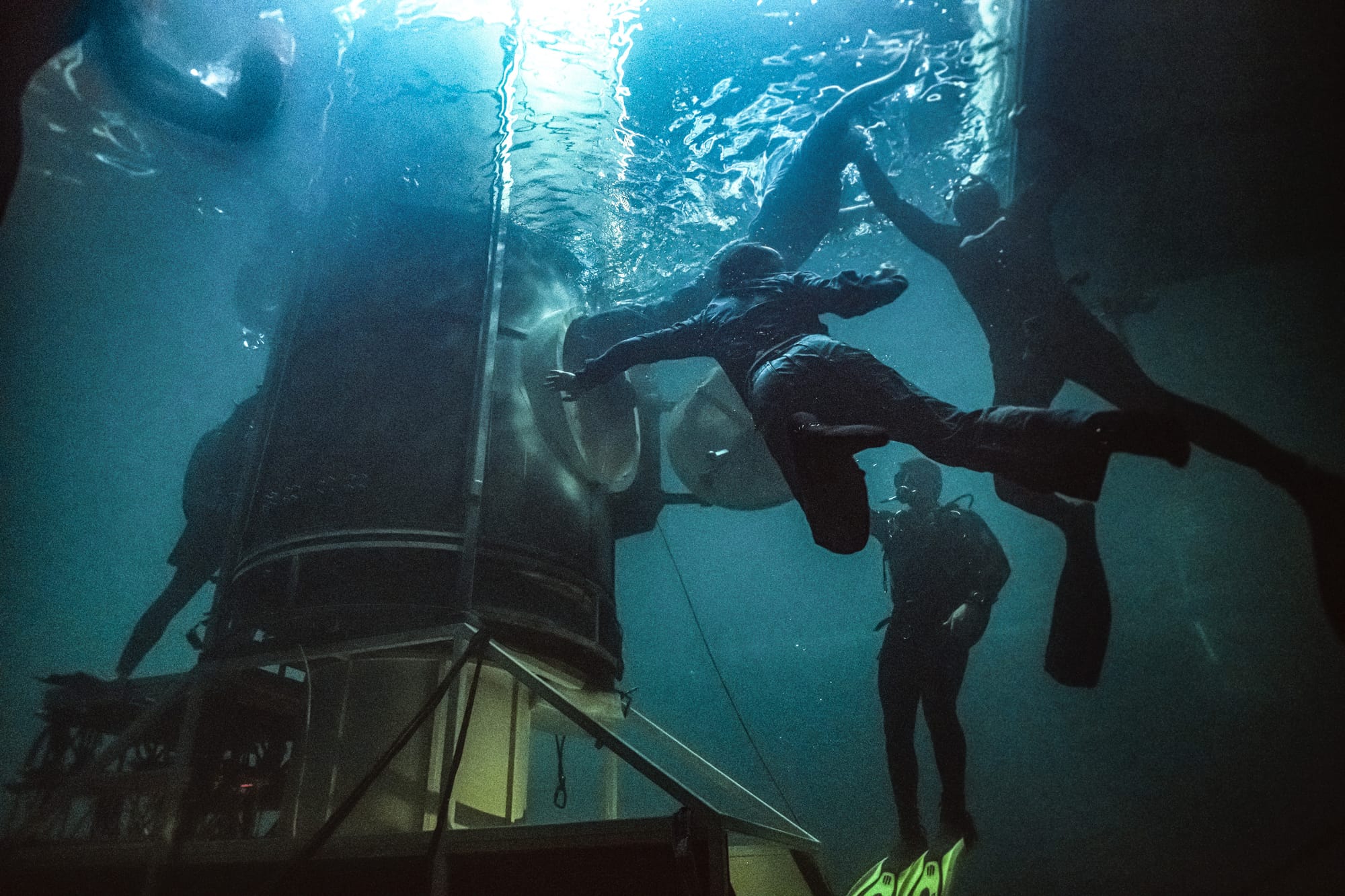
The story follows actors I’ve never seen before through intimate, carefully choreographed shots that present often at human-scale inside a shiny submarine which feels like it’s in active use. Overall, you feel like you’re face-to-face with these characters as they seem to occupy space just a few feet from you, with a thin depth of field to many shots that keeps your eyes locked on every expression and pore on their faces. Camera movements tend to move straight forward or back in consistent comfort, except for a few moments where the director wants to invoke some shift in your attention or mindset.
The most remarkable part of this film — ultimately the reason why this is a must-see for cinephiles and prospective filmmakers — is the way it tests the limits of linear storytelling with an immersive camera. I’ve seen some immersive films I would rather forget now, from the Jaunt days nearly a decade ago, and one in particular I’d wish to exit from my memory featured actors in a war epic who seemed put off by their vicinity to the camera. In Submerged, though, a couple brief moments where the cuts held too long on an actor hitting their mark are largely forgettable next to the way the camera builds toward a climax.
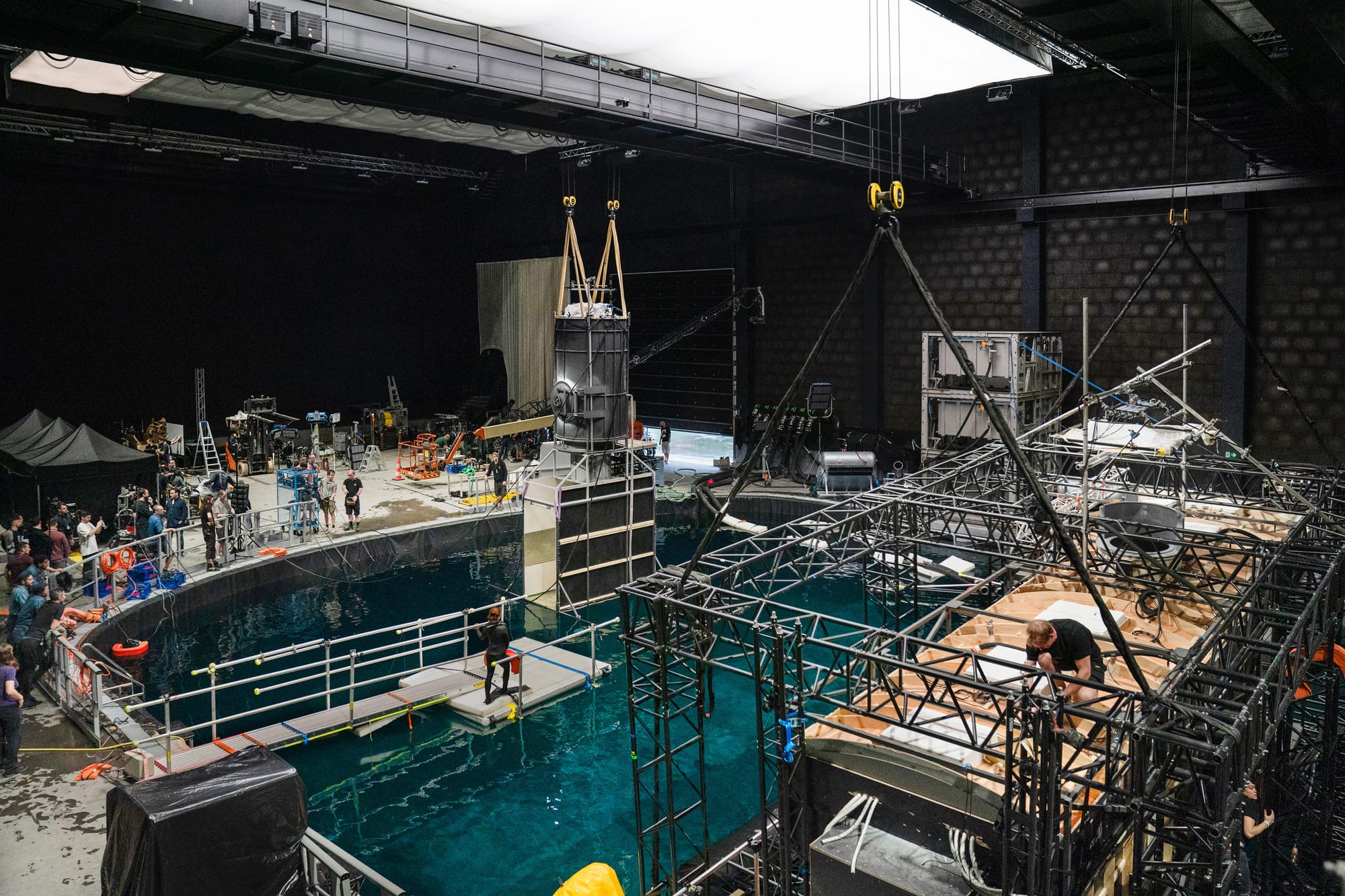
I will never forget the sinking feeling achieved by Apple’s cameras steadily tilting off their horizontal axis in each subsequent shot. Altogether, the production value and execution here leave the viewer with nothing to do at the end except take a deep breath of fresh air.
Behind-The-Scenes
Apple released a behind-the-scenes video showing its camera system and sets, as well as the official text pasted below:
Shot on location in Prague, Brussels, and Malta over three weeks, Submerged was filmed using a full-scale 23-ton submarine set made with real steel, brass, and metal that was modeled after WWII-era vessels. Significant portions of the set were built to withstand being fully submerged, and featured practical camera traps and special effects that were uniquely rigged to expose Apple Immersive Video cameras to sparks, steam, water, and fire without breaking viewers’ sense of immersion. Cast members who might appear out of frame or focus in a 2D feature were meticulously scripted, and participated in extensive stunt rehearsals, including freedive training in dive tanks and open water, to maintain continuity and realism.

